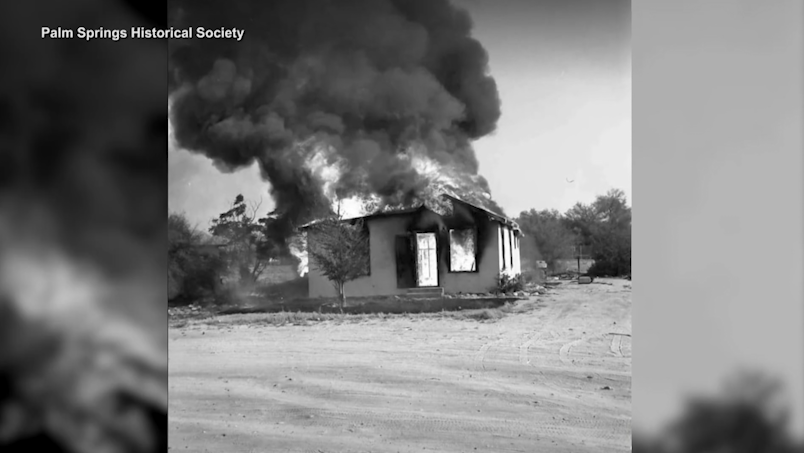Palm Springs City Council rejects consultant agreement to develop Section 14 reparations program services
The Palm Springs City Council voted not to approve a consultant agreement to develop reparations program services for Section 14 survivors.
In a 3-2 vote, the council struck down a proposed 12-month, $502,304 contract with The Trustees of Columbia University. If approved, the team would've spent the next year working on a reparations plan for the survivors of the Section 14 forced evictions that took place between 1954 and 1966.
The team would've included members from the African American Redress Network, FirstRepair, and the International Center for Transitional Justice.
Councilmembers Lisa Middleton and Ron DeHarte, along with Mayor Pro-Tem Jeffrey Bernstein, called for more research to be done on the issue, including the city's role in the forced evictions, before moving forward with a reparations program.
"I feel like we're missing what we set out to do, which is identify the depth of the harm and the individuals that were harmed specifically," DeHarte said. "I don't see this proposal as being the right approach for us."
Middleton and Bernstein also called for further research on the issue to be done by a group that doesn't also have some advocacy role.
"I do think that there should be some form of reparations for what the city did," Bernstein said. "But we go from what could be a $2 billion cash payout to giving housing subsidies. So that's why I do think we need to go forward, but an advocacy group I don't think will be objective in going through the historical context."
In November, economist Dr. Julianne Malveaux calculated the economic harm done to families based on the present values of the homes and property that were lost. Malveaux said it's an estimated $400 million to $2 billion dollars.
Palm Springs Mayor Grace Garner and Councilmember Christy Holstege were the two "no" votes on not moving forward with the contract.
Holstege expressed her disappointment with the outcome.
"The city council for the city of Palm Springs issued an apology. We apologized for our role, we know there was wrongdoing and the city council, majority of it, said that we wanted to do a reparations program. And so, and we know the urgency as so many of the residents are aging," Holstege said.
Garner said she believes the process is taking too long and she does not believe that it will ultimately change the result of what the council will do.
Section 14 was located in the downtown Palm Springs area. It was home to hundreds of people, mostly minority families, until the 1950s when they were forcibly evicted and their homes razed for the city’s development.

In Sept. 2021, the city formally apologized for its role and began the process for a monetary contribution to those displaced.
In November, a group of over 500 survivors and descendants filed a racial reparations claim against the city of Palm Springs. It was seen as the first step toward a